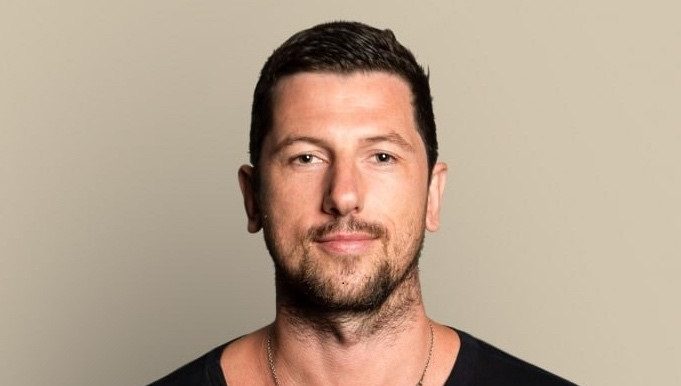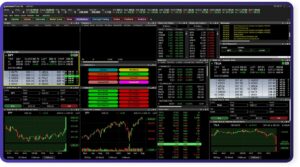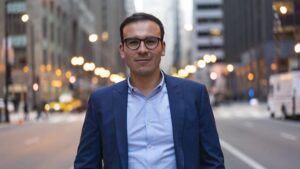FNG Exclusive Interview… Following our exclusive report from last week that Finyard had just launched in Cyprus as a new FX & CFD broker technology platform provider – and had added a number of high profile executives to its roster including former XM and Trading.com CMO Rachel Demosthenous, as well as Exness Affiliates head Sergey Yarovoy – we thought that it would be a good time to catch up with Finyard founder and CEO Dmitrij Pruglo.
What is Finyard doing?
How is Finyard different than Covesting, the other trading tech provider run by Dmitrij and his Finyard co-founder Tim Voronin?
What are the company’s plans for 2024?
Here is what Dmitrij had to say, exclusively at FNG.
FNG: Hi Dmitrij, and thanks for joining us today. Please let us know a little more about Finyard, and what it provides.
Dmitrij: At Finyard, we’re deeply passionate about merging technology and finance. Our team comprises talented engineers, data scientists, financial market experts, product managers, and marketers. Together, we focus on crafting and launching cutting-edge fintech products. Our suite of offerings spans from back-office systems, treasury, order matching, and trading engines to dynamic client areas, mobile apps, and web interfaces. It’s an ecosystem of diverse tools and services that are fully customizable and deployable under any brand.
FNG: You and Tim Voronin were running Covesting together for the past few years, and now Finyard. How is Finyard different from what you were doing the past while with Covesting?
Dmitrij: Covesting initially emerged as a cryptocurrency platform with its proprietary COV utility token. In 2018, we committed to pioneering a copy-trading service for the crypto trading domain, and we succeeded. Our team developed and successfully launched the Covesting peer-to-peer copy-trading module, coupled with COV token functionalities that unlocked various benefits for token holders. This module was integrated into a third-party margin trading platform through a B2B partnership.
Additionally, we were among the early companies to obtain Gibraltar’s DLT license, enabling us to operate as a spot exchange. However, due to shifts in the crypto industry—declining global demand for crypto services, reduced trading volumes, and increased competition—we chose not to continue our operations as a cryptocurrency exchange.
While we remain dedicated to developing and supporting the Covesting copy-trading platform, we also decided to explore additional directions in software development beyond the crypto sphere. This led to the establishment of Finyard.
FNG: From your perspective, what do Retail FX & CFD brokers do well, and in what areas do they need to improve? How does Finyard fit in to that?
Dmitrij: In my view, the majority of FX & CFD brokers lack significant technological progress. While the DLT space consistently introduces numerous new technologies, blockchains, and products annually, the product vision of Forex and CFD brokers often remains confined to MT4, a few payment providers, and a call center, halting innovation in its tracks.
Consider the strides made by the DLT space in recent years—NFTs, metaverses, numerous DApps providing a variety of services, and the entire realm of decentralized finance, offering innovative avenues for saving, generating passive income, lending, and more. Although the crypto space has its downsides, it undeniably outpaces the FX & CFD space in terms of speed and innovation, which currently feels somewhat antiquated, akin to Windows 95.
At Finyard, one of our primary objectives is to bridge this gap by introducing innovations into traditional finance. Our aim is to develop products that revitalize the outdated TradFI industry. We envision the potential for AI-based advisory services, dynamic user journeys/product funnels, and the tokenization of traditional assets like equities and bonds.
FNG: What changes to “the industry” do you see unfolding in 2024? How do brokers need to adapt to those changes to both survive and thrive?
Dmitrij: I anticipate intensified competition within the industry, compelling legacy brokers to finally align with technological trends. Failure to do so could lead to their disappearance from the market within the next five to ten years. This urgency stems from the expectations of today’s generation, accustomed to sleek product interfaces, inclusive services, and stress-free experiences.
The global adoption of investment services is on an upward trajectory, attracting a growing number of individuals interested in wealth and investment apps. However, these newcomers seek easy, intuitive products that facilitate entry into investing with minimal prior knowledge. Presently, the majority of platforms available in the market are overly technical, cluttered, and lack user-friendliness. Brokers must pivot towards offering more intuitive and user-centric experiences to cater to this emerging demand.
We’re observing a burgeoning trend of neobrokers, akin to how neobanks transformed our daily banking experiences. These neobrokers have the potential to democratize the investing space.
FNG: We recently posted about Finyard adding some fairly experienced FX industry executives to the fold, like Rachel Demosthenous (ex XM / Trading.com) and Sergey Yarovoy (Exness). What else can we expect to hear from Finyard in the new year?
Dmitrij: We will continue hiring in 2024 as we aim to build an ultra-strong team. I believe that if you have a team of extremely smart, motivated, pro-active and experienced individuals – there is no goal that can’t be achieved.
Both seasoned executives and young talents are drawn to Finyard for two reasons:
1) Innovation and interesting challenges that they see in our roadmap.
2) Ability to make real impact while having significant amount of ownership (in decision making) that we provide to them.
In 2024, our product pipeline holds numerous initiatives. However, our primary focus remains on solidifying Finyard’s reputation as one of the most sought-after workplaces for individuals passionate about technology and finance. We encourage those who think outside the box and prefer pioneering innovation rather than following the status quo.









